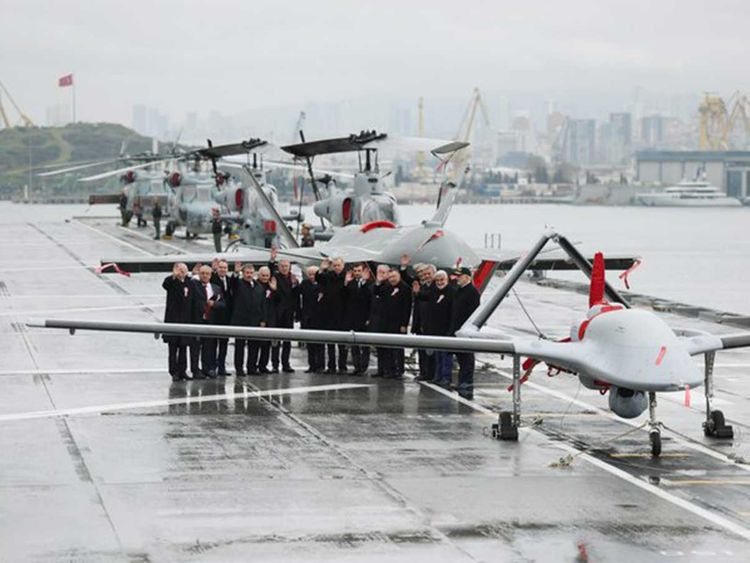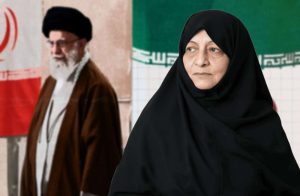Turkiye on Monday launched its inaugural aircraft carrier, the TCG Anadolu, with the objective of expanding its drone capabilities from land-based to naval operations. The move comes amidst heightened regional tensions, as conflict continues to rage in Ukraine on the opposite side of the Black Sea.
The TCG Anadolu can only handle lightweight aircraft, mainly helicopters and jets capable of taking off from shorter runways. With a length of 232 meters and width of 32 meters, it can carry up to 1,400 personnel, including a battalion of soldiers, combat vehicles, and support units for overseas operations.
During the launch ceremony in Istanbul, President Tayyip Erdogan stated that the vessel would enable the country to conduct military and humanitarian operations worldwide when necessary. He also emphasized that it is a symbol that will reinforce Turkey’s regional leadership position. The amphibious assault ship was built in Istanbul’s Sedef Shipyard by a Turkish-Spanish consortium, modeled after the design of Spain’s light aircraft carrier, Juan Carlos I.
Yolun açık olsun TCG Anadolu. ???????? pic.twitter.com/n3qoo2xbSb
— Recep Tayyip Erdoğan (@RTErdogan) April 10, 2023
Initially, Ankara had planned to deploy F-35 B-model fighter jets, which can take off from shorter runways, on its largest warship. However, the US expelled Turkey, a NATO ally, from its F-35 program in 2019 after Ankara acquired Russian S-400 defense systems. As a result, Turkiye repurposed the TCG Anadolu as a drone carrier. Along with helicopters, the country intends to deploy Bayraktar TB3 and Kizilelma unmanned aerial combat vehicles, produced by Turkish defense firm Baykar, as well as the Hurjet light attack aircraft, which is currently being developed by Turkish Aerospace Industries (TAI).
Once the plan is executed, the TCG Anadolu will be the first aircraft carrier worldwide whose fleet primarily consists of armed drones. With NATO’s second-largest army, Turkiye has borders with Syria and Iraq, both of which are riddled with conflict, as well as a long coastline on the Mediterranean and the Black Sea.
Over the nearly 14-month Ukraine war, Turkiye has established itself as an intermediary between Moscow and Kyiv, assisting in brokering a deal through the United Nations that enables the secure export of grain from Ukrainian ports via the Black Sea.














